Deft Dysart Destruction For the Death of Toyo Harada
Jan 20, 2019
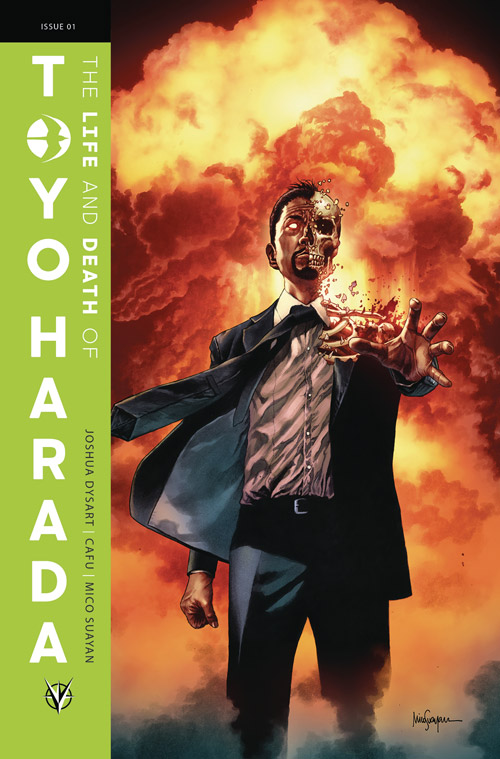 |
by Vince Brusio
What is the fine line between megalomania and just trying to do the right thing? Who is to say that if one tries to “correct” the world that it is either a good intention, or an act of evil. It’s all relative to who is the bystander when change is implemented. Good or evil is in the eye of the beholder. So who is ready to judge Joshua’s Dysart’s story of The Life and Death of Toyo Harada #1 (JAN192176) from Valiant Entertainment? Dare you cast your vote? Are you ready to read this interview, and dare to disagree? Or will you remain just a face in the crowd? Read on, and judge!
**********
Vince Brusio: A mind gone haywire as one man tries to save humanity from itself. And given that this story is being framed around “The Atomic Age,” one can’t help but think of Dr. Manhattan from Watchmen. Did Moore’s classic work have any bearing on how you would approach your own story for The Life and Death of Toyo Harada?
Joshua Dysart: Moore’s Watchmen is a perennial story for me. I purchased it in single issues as it was first being published when I was 14, an incredibly impressionable age. It’s as much a building block in my work as anything. Having said that, there’s no conscious attempt to draw from Watchmen here. I’m sure it’s in the work somewhere, but not intentionally. There’s probably more of the philosophical thrust of Warren Ellis’ Authority than Watchmen in my Toyo Harada stories, but who can say what storm of influences make up a work?
Vince Brusio: It’s in our nature to improve our surroundings. As mankind evolved, we learned the value of shelter and a balanced ecosystem, but those values change over time for many. One is then faced with letting things play out, or adopting positions that could label you an “activist.” Does that term best describe Toyo in his mind? How would he self-analyze his behaviors and beliefs?
Joshua Dysart: Yes, Toyo Harada sees himself as an activist, but we have to be careful with that word. As you point out, people take action all the time, in micro and macro and in personal and communal ways, so we’re all activists to one degree or another. I think Harada takes a broader view of it.
The way I imagine Harada sees himself is as a force of nature. We are all aspects of nature, of course. People are not above or below nature; we are not apart from it. And because we are nature, all of our systems are aspects of nature as well. Economics is nature; politics is nature; ecology, obviously, is nature. And since we are nature, and our systems are aspects of nature, then we each play our role in both the destabilization and stabilization of these systems.
But Harada knows he’s not an ordinary person, an ordinary aspect of nature. He sees himself, correctly, as a huge spike of aggregate power in nature. He is an individual will and mind with an incredible advantage over almost all other minds in this natural construct. Because of his unique position, he believes he is burdened with the responsibility of correcting the path of our natural systems by ending war and famine and increasing equitable access to education, personal mobility, and health.
Yet, regardless of his intentions or perceptions of himself, Harada is a wild act of imbalance as well, precisely because he’s an outlier, and so he is bound to inspire attempts to correct his power. And because he is a human being, he is guided by ego. But it’s not that he’s unaware of these aspects of his character. It’s just that like all people, paupers and kings, he’s trapped by his own persona and his station in the construct.
Vince Brusio: What previous events in continuity helped bring us to this point in Toyo’s life?
Joshua Dysart: Part of Life And Death is an exploration of the events in Harada’s life that the reader hasn’t seen before, though it is new-reader friendly, I promise. These are events that more clearly draw the line of his existence to this point. That larger arc of Harada’s life is the core concept we explore.
Those who have been following along for a while know that this is Harada’s third attempt at gaining global control. It is also his most bold, his least covert. As each effort to alter the course of human events seems to him to fail, he has become more and more blatant in his actions. (Of course, Harada hasn’t failed. He’s already, absolutely, forever altered the course of humanity. The Bleeding Monk tried to tell him this at the end of Harbinger. He just can’t stop himself from trying to alter it even further and faster). So, more directly, the choices he made in Imperium, in particular the alliances he made, will come back to haunt him.
Vince Brusio: One thing heroes and villains have in common: they both believe they’re doing the right thing. Would you say that the way Toyo is currently thinking, he’s closer to being a villain than a hero? What could he do to pull himself back from the edge?
Joshua Dysart: Whether I think Harada is a hero or villain is the most asked question I get about my work with this character. It’s great. It means I’ve succeeded at blurring the line between Harada’s intentions, his actions, and the outcome of those actions. But it also means I’ve answered this question so many different ways I’ve probably muddied the water and contradicted myself. But here’s how I see it right now...
Harada seeks equality for all, but he himself has no equal. He wants to grant everyone a degree of personal power, but he does not abdicate his own power (as Peter Stanchek – one of Harada’s most powerful recruits – has tried to do in the past). And because he is special, burdened with great responsibility, it has allowed him to justify violence as a means to an end. These are ultimately not the traits of a hero as we traditionally understand a hero.
One of the lessons of the 20th century, which Life And Death spans, is that idealistic revolution, particularly when enacted through violence, never directly corrects the problem of human inequality and suffering. It is the civilizations that muddle along, that trudge through the chaos of their own systems, seeking small balances instead of large corrections, that slowly move toward actual equality. This often feels too slow for those of us that are compassionate enough to be concerned with human suffering. We want to accelerate the forces of change, but again and again, idealism backed by violence ends up destabilizing societies instead of strengthening them. Toyo would argue that sometimes a society is so broken it must be destroyed to make room for growth. But we know that rebuilding something new from a foundation of violence and chaos is extremely difficult.
Plus, I think that with power like Harada’s, no matter what his moral position, it would create adversarial opposition. Power breeds adversaries. This is the basis of Peter Stanchek’s philosophical position, that with great power it is best to do nothing at all, lest you become the force of imbalance yourself. This, of course, is also a problematic way to think of the use of power, but since you’re not asking about Peter, I’ll spare you all of that. Just to note that both men, Peter and Harada, are less about the “good guy” and the “bad guy,” and more about oppositional philosophical takes on the nature and use of power.
So maybe the question isn’t as blunt as, “Is Harada a villain or a hero?” The question is, “Does it take a Toyo Harada to end the momentum of our tyrannical institutions and isms? Or is he only strengthening them with his resistance?” I don’t know the answer to that question. In part, my work on Harada is an attempt to explore these questions.
Your other question, “can he pull himself back from the edge,” that tells me you’ve already made up your mind as to whether Harada is a hero or villain, which is totally cool, but you’ll just have to read Life And Death to see how it all plays out.
Vince Brusio: There must be a lot of noise inside Toyo’s head to make him lean towards atomizing the world for its own good. Do you feel that psychosis has been shown to its fullest extent, or will we be able to peer more into the mind that could make the man into a megalomaniac?
Joshua Dysart: With respect, I’m not sure I agree with the premise behind the question. Excuse me if I’m misunderstanding, but I actually think it’s quite tranquil in Harada’s head.
If you mean “atomizing the world” in the strictest definition of the word “atomize,” then that’s the very opposite of his intentions. He has made it clear that avoiding megadeath by global war, famine, ecological collapse, or any other scenario is his lifelong goal. The irony of the story, and maybe this is what you mean, is that he is causing global conflict with his opposition to the institutions that perpetrate poverty and violence, but that’s just the natural complications of his escalation tendencies. Harada is aware of these contradictions. As I mentioned above, he’s trapped by them, but it’s not due to a lack of awareness. We’re all trapped by our natures.
I’m also not sure that megalomania applies to Toyo Harada, though this is just an interpretation of the character, and I don’t mean to correct your take on his persona. But to me megalomania suggests a grandiose delusion of power, which doesn’t quite seem to fit here. There is no mistaking Harada’s power. He’s not laboring under any delusions. I think what we’re talking about isn’t a mental disorder, but simply an ego attached to unmeasurable magnitudes of actual power, and the weight and responsibility of that power.
But if you’re asking, “Will we be getting a deeper glimpse into the psychology of the man, what he thinks and why,” then yes, that’s the intention. And we might even change the way you interpret the man.
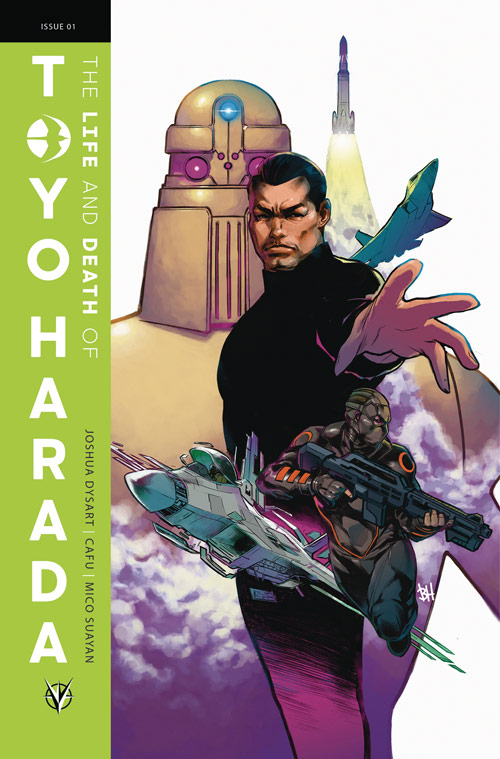 |
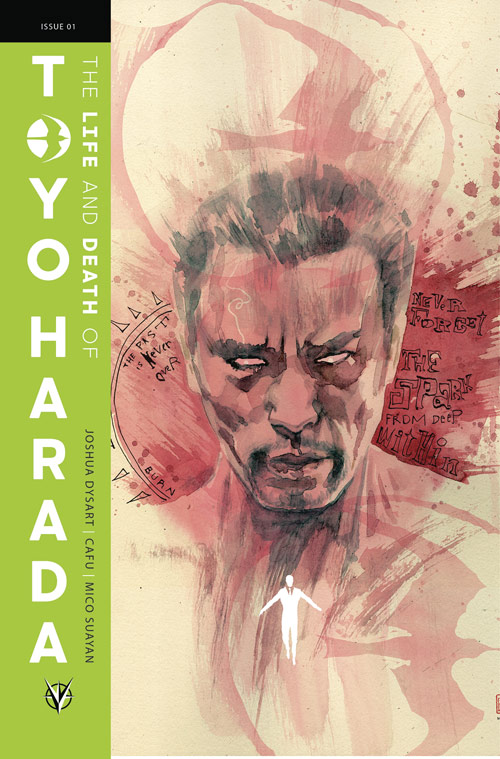 |
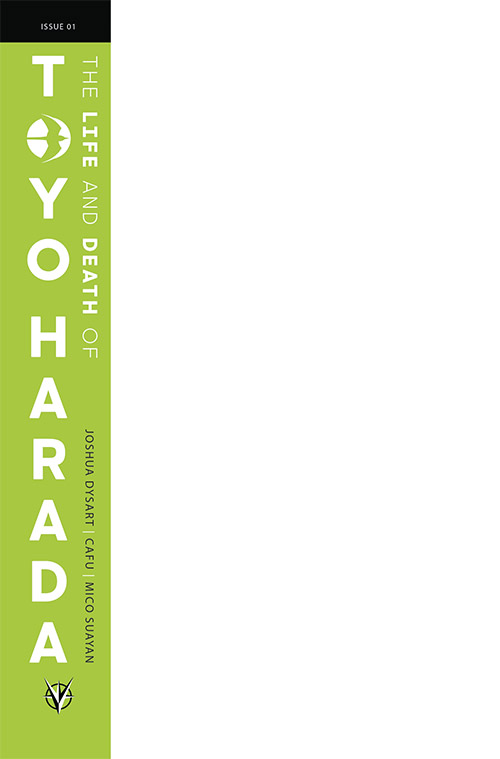 |
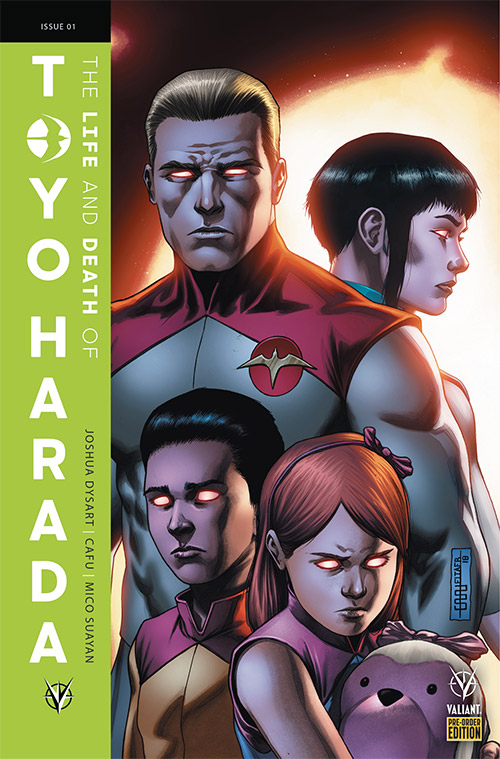 |
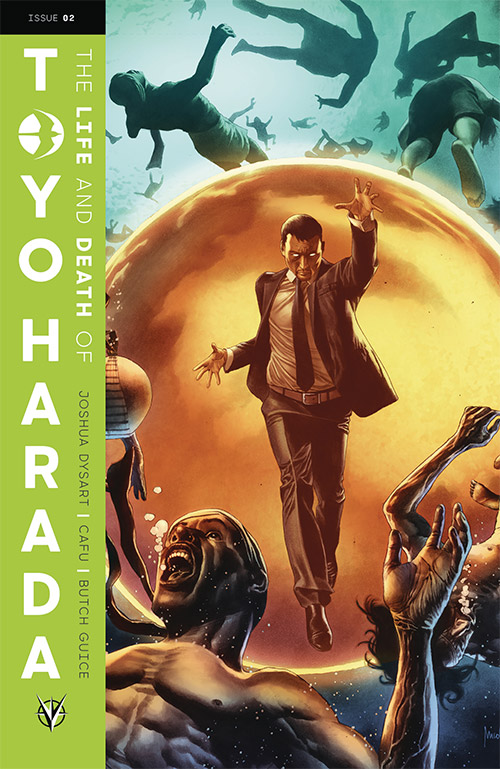 |




